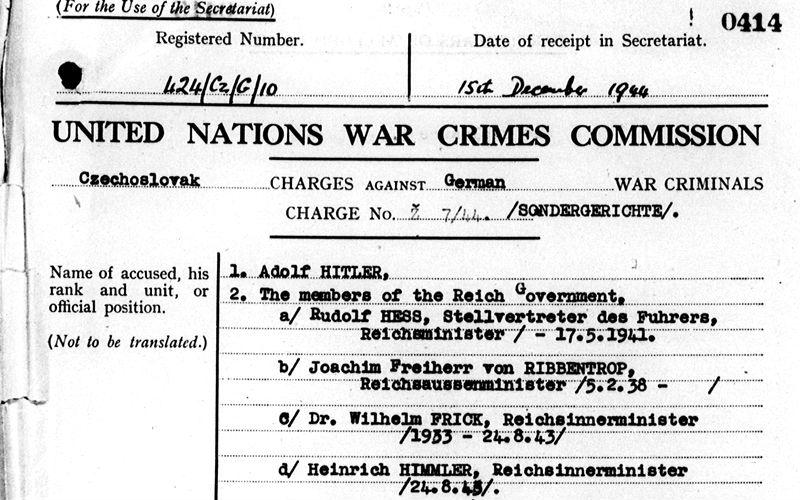UN indicted Adolf Hitler for war crimes before his death, secret documents reveal
A month before his death 'the commission had endorsed at least seven separate indictments against him for war crimes'

Contrary to longstanding assumptions, Adolf Hitler was indicted as a war criminal for actions by the Nazis during the Second World War before he died.
A new book, "Human Rights After Hitler," by British academic Dan Plesch, says Hitler was put on the UN War Crimes Commission's first list of war criminals in December 1944.
The previous month the commission — which began its work in 1943, prior to the formal establishment of the UN in 1945 — determined Hitler could be held criminally responsible for the acts of the Nazis in occupied countries, according to the book.
And by March 1945 — a month before Hitler's death — "the commission had endorsed at least seven separate indictments against him for war crimes."

A 15 December 1944 document submitted to the commission by Czechoslovakia accuses Hitler and five members of "the Reich government," including his deputy Rudolf Hess and Heinrich Himmler, one of the Nazis most responsible for the Holocaust, of crimes including "murder and massacres-systematic terrorism."
Mr Plesch's book also shows the Allied Powers were aware of the scale of the Holocaust two-and-a-half years earlier than is generally assumed.
According to the book, legally certified documents, government transcripts and interviews with torture victims "prove beyond doubt" the US and British governments were told about Hitler's extermination camps in the early years of the Second World War.
Mr Plesch said both governments acknowledged their existence but did almost nothing to stop the mass killings.

The earliest condemnations of Nazi atrocities were made in a joint statement by the Czech and Polish governments in November 1940.
In 1942, the American, British and Soviet governments led their allies in a public declaration "that explicitly condemned Hitler's ongoing extermination of European Jews," and the book says condemnation was far stronger than commonly believed.
"The records overturn one of the most important accepted truths concerning the Holocaust: that, despite the heroic efforts of escapees from Nazi-occupied Europe, the allies never officially accepted the reality of the Holocaust and therefore never condemned it until the camps were liberated at the end of the war," Mr Plesch wrote.
Join our commenting forum
Join thought-provoking conversations, follow other Independent readers and see their replies
Comments
Bookmark popover
Removed from bookmarks